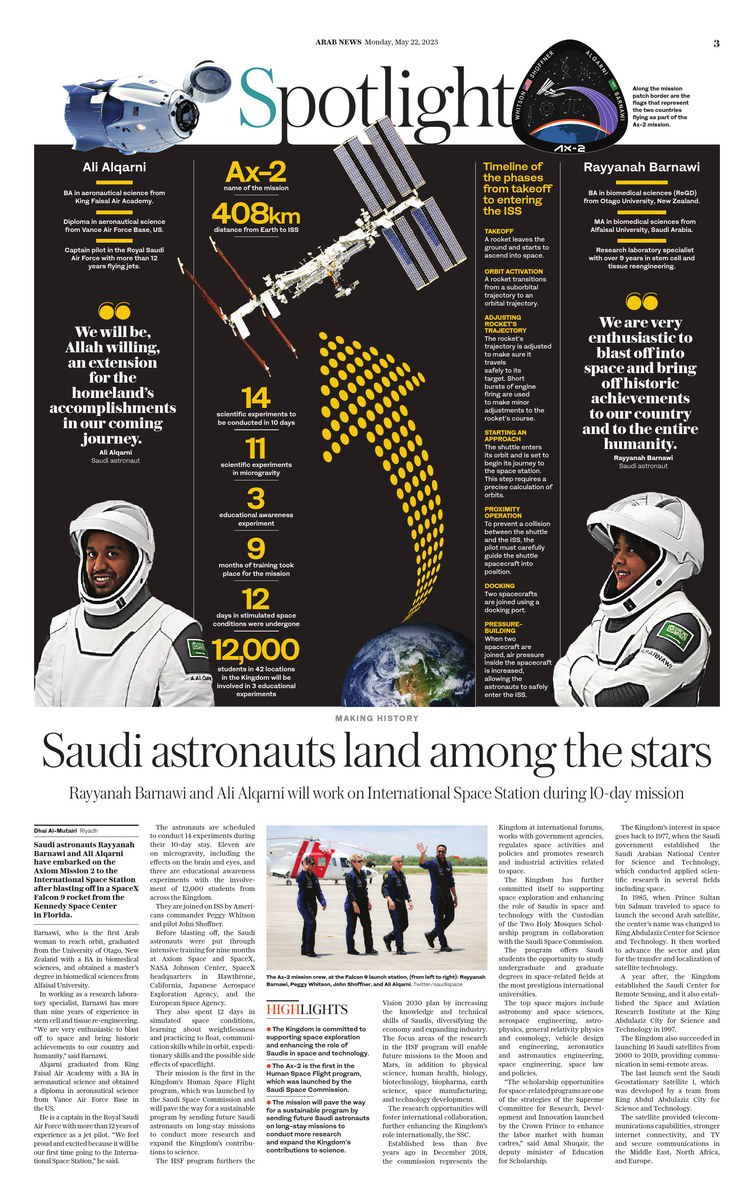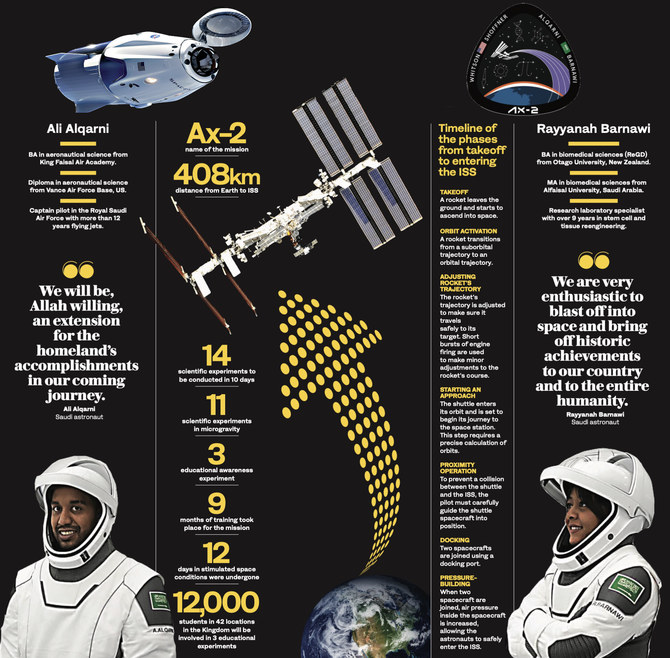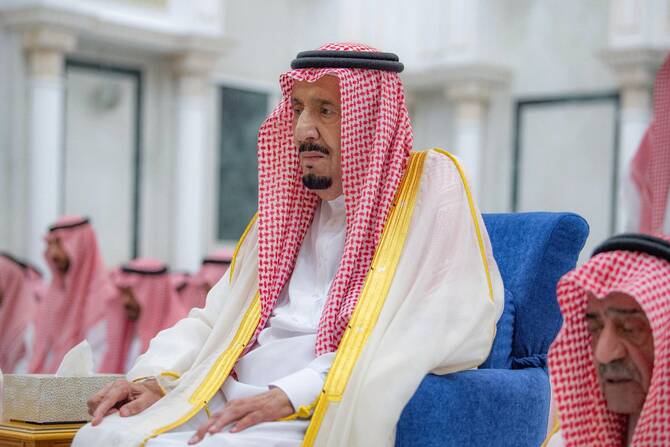RIYADH: Saudi astronauts Rayyanah Barnawi and Ali Alqarni have embarked on the Axiom Mission 2 to the International Space Station after blasting off in a SpaceX Falcon 9 rocket from the Kennedy Space Center in Florida.
Barnawi, who is the first Arab woman to reach orbit, graduated from the University of Otago, New Zealand with a BA in biomedical sciences, and obtained a master’s degree in biomedical sciences from Alfaisal University.
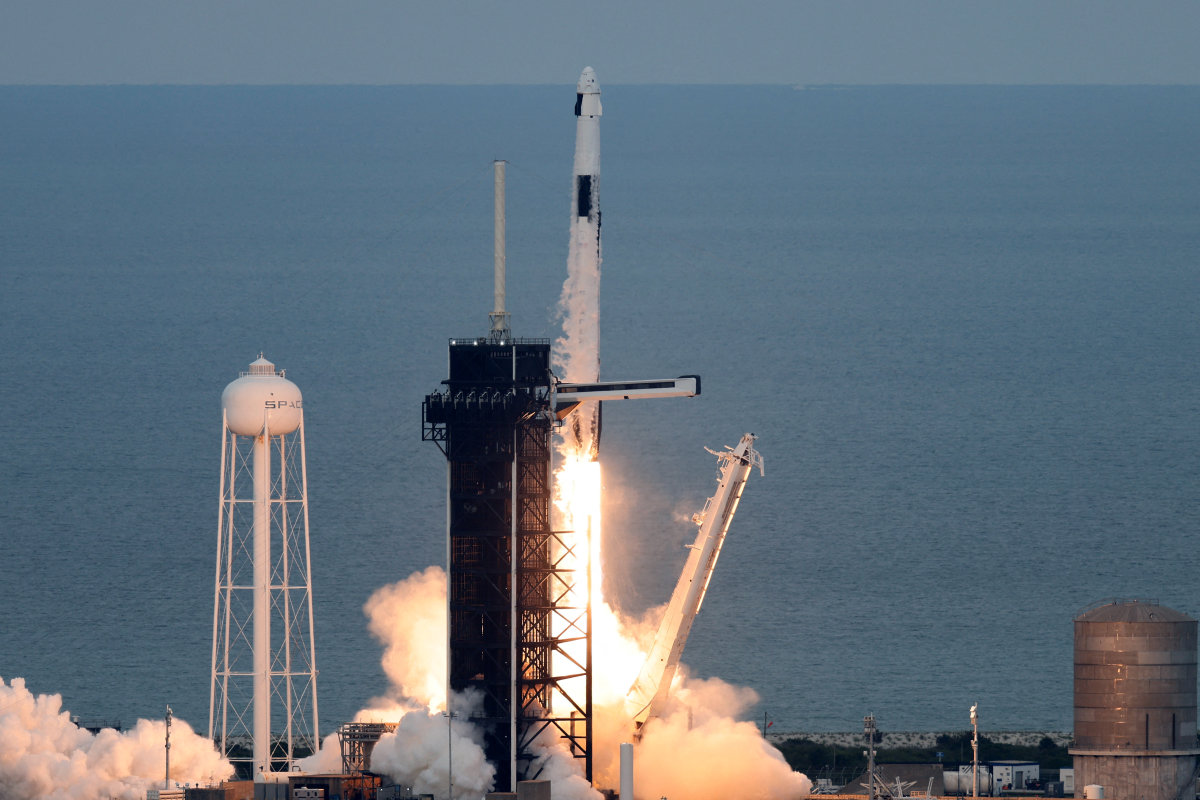
The Axiom Mission 2 (Ax-2) aboard a SpaceX Falcon 9 and Dragon capsule, carrying 4 crew members to the International Space Station, lifts off from Kennedy Space Center in Florida on May 21, 2023. (REUTERS)
In working as a research laboratory specialist, Barnawi has more than nine years of experience in stem cell and tissue re-engineering. “We are very enthusiastic to blast off to space and bring historic achievements to our country and humanity,” said Barnawi.
Alqarni graduated from King Faisal Air Academy with a BA in aeronautical science and obtained a diploma in aeronautical science from Vance Air Force Base in the US.
He is a captain in the Royal Saudi Air Force with more than 12 years of experience as a jet pilot. “We feel proud and excited because it will be our first time going to the International Space Station,” he said.
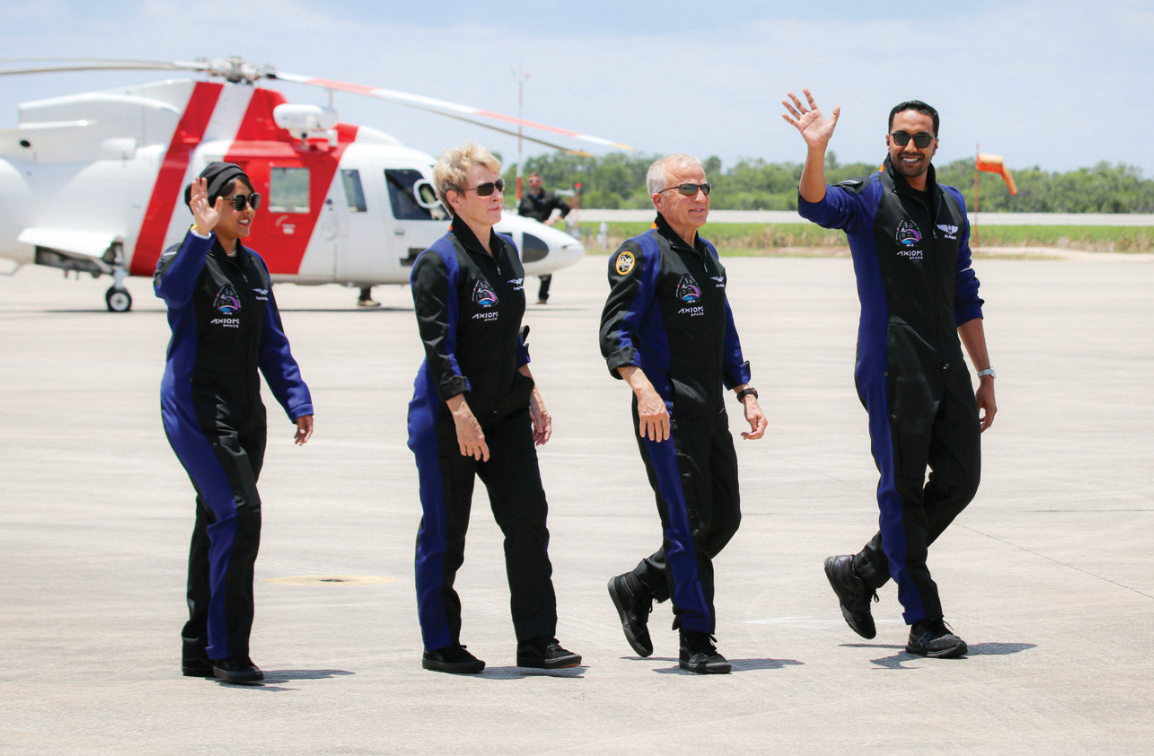
The ax-2 mission crew, at the Falcon 9 launch station, (from left to right): Rayyanah Barnawi, Peggy Whitson, John Shoffner, and Ali Alqarni. (Twitter/saudispace)
The astronauts are scheduled to conduct 14 experiments during their 8-day stay. Eleven are on microgravity, including the effects on the brain and eyes, and three are educational awareness experiments with the involvement of 12,000 students from across the Kingdom.
They are joined on ISS by Americans commander Peggy Whitson and pilot John Shoffner.
Before blasting off, the Saudi astronauts were put through intensive training for nine months at Axiom Space and SpaceX, NASA Johnson Center, SpaceX headquarters in Hawthrone, California, Japanese Aerospace Exploration Agency, and the European Space Agency.
They also spent 12 days in simulated space conditions, learning about weightlessness and practicing to float, communication skills while in orbit, expeditionary skills and the possible side effects of spaceflight.
HIGHLIGHTS
The Kingdom is committed to supporting space exploration and enhancing the role of Saudis in space and technology.
The Ax-2 is the first in the Human Space Flight program, which was launched by the Saudi Space Commission.
The mission will pave the way for a sustainable program by sending future Saudi astronauts on long-stay missions to conduct more research and expand the Kingdom’s contributions to science.
Their mission is the first in the Kingdom’s Human Space Flight program, which was launched by the Saudi Space Commission and will pave the way for a sustainable program by sending future Saudi astronauts on long-stay missions to conduct more research and expand the Kingdom’s contributions to science.
Vision 2030 plan by increasing the knowledge and technical skills of Saudis, diversifying the economy and expanding industry. The focus areas of the research in the HSF program will enable future missions to the Moon and Mars, in addition to physical science, human health, biology, biotechnology, biopharma, earth science, space manufacturing, and technology development.
The research opportunities will foster international collaboration, further enhancing the Kingdom’s role internationally, the SSC.
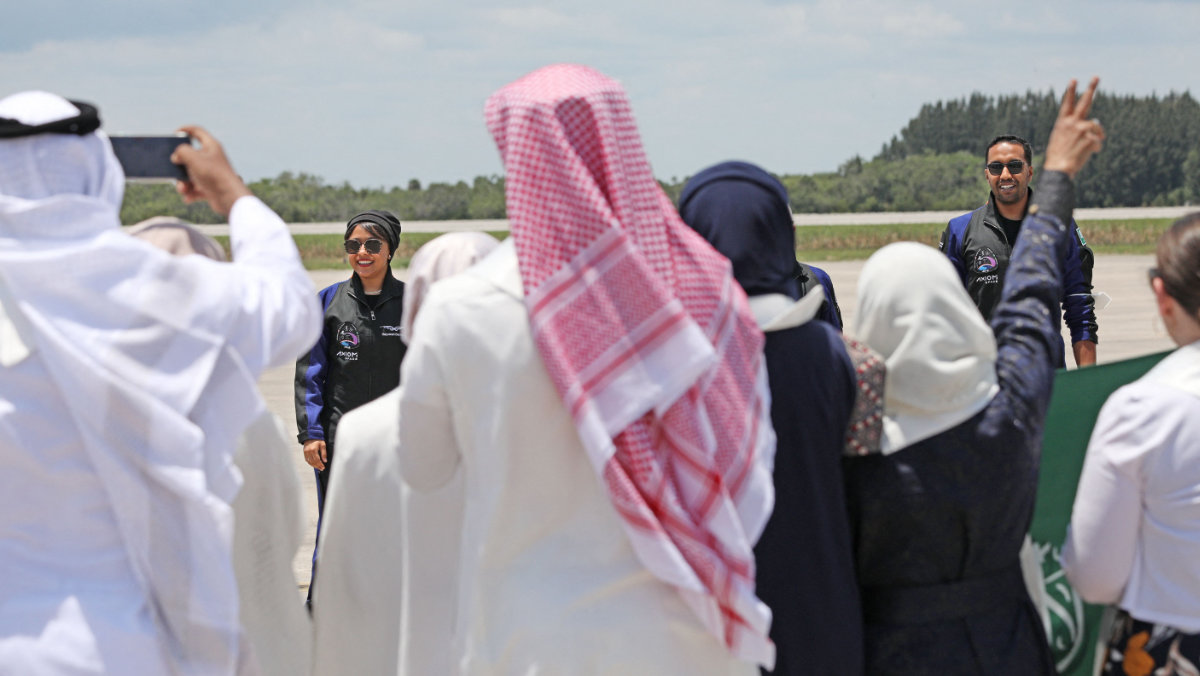
Relatives of Axiom Mission 2 astronauts Rayyanah Barnawi (L) and Ali Alqarni bid them farewell as they arrive at the Kennedy Space Center in Cape Canaveral, Florida, on May 21, 2023. (AFP)
Established less than five years ago in December 2018, the commission represents the Kingdom at international forums, works with government agencies, regulates space activities and policies and promotes research and industrial activities related to space.
The Kingdom has further committed itself to supporting space exploration and enhancing the role of Saudis in space and technology with the Custodian of the Two Holy Mosques Scholarship program in collaboration with the Saudi Space Commission.
The program offers Saudi students the opportunity to study undergraduate and graduate degrees in space-related fields at the most prestigious international universities.
The top space majors include astronomy and space sciences, aerospace engineering, astrophysics, general relativity physics and cosmology, vehicle design and engineering, aeronautics and astronautics engineering, space engineering, space law and policies.
ALSO READ:
• When a Saudi went to space
• Saudi space agency training program ready for liftoff
“The scholarship opportunities for space-related programs are one of the strategies of the Supreme Committee for Research, Development and Innovation launched by the Crown Prince to enhance the labor market with human cadres,” said Amal Shuqair, the deputy minister of Education for Scholarship.
The Kingdom’s interest in space goes back to 1977, when the Saudi government established the Saudi Arabian National Center for Science and Technology, which conducted applied scientific research in several fields including space.
In 1985, when Prince Sultan bin Salman traveled to space to launch the second Arab satellite, the center’s name was changed to King Abdulaziz Center for Science and Technology. It then worked to advance the sector and plan for the transfer and localization of satellite technology.
A year after, the Kingdom established the Saudi Center for Remote Sensing, and it also established the Space and Aviation Research Institute at the King Abdulaziz City for Science and Technology in 1997.
The Kingdom also succeeded in launching 16 Saudi satellites from 2000 to 2019, providing communication in semi-remote areas.
The last launch sent the Saudi Geostationary Satellite 1, which was developed by a team from King Abdul Abdulaziz City for Science and Technology.
The satellite provided telecommunications capabilities, stronger internet connectivity, and TV and secure communications in the Middle East, North Africa, and Europe.
